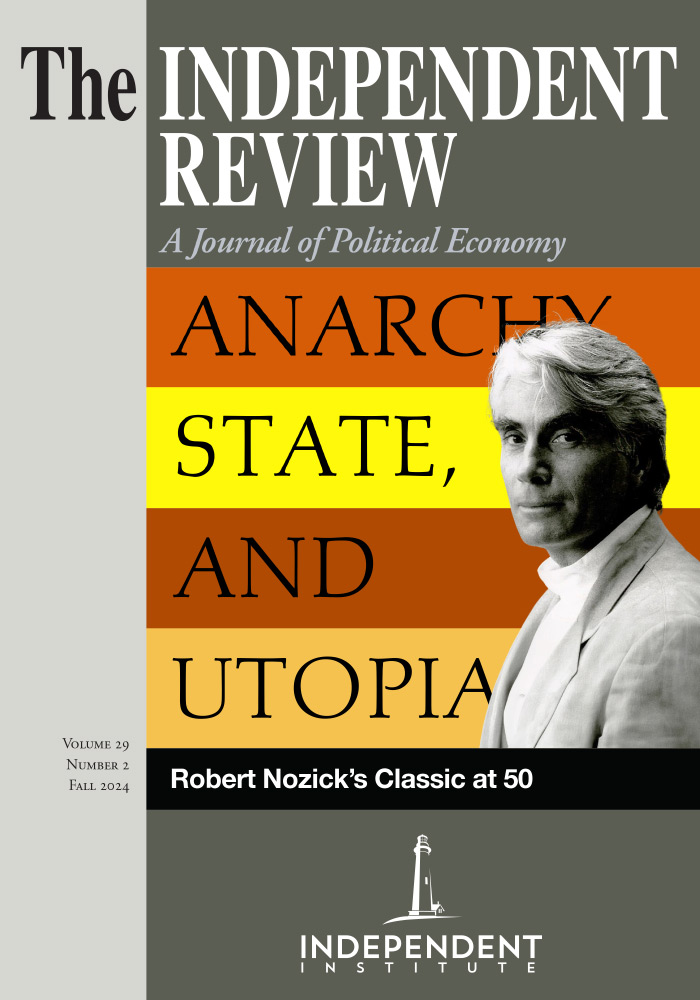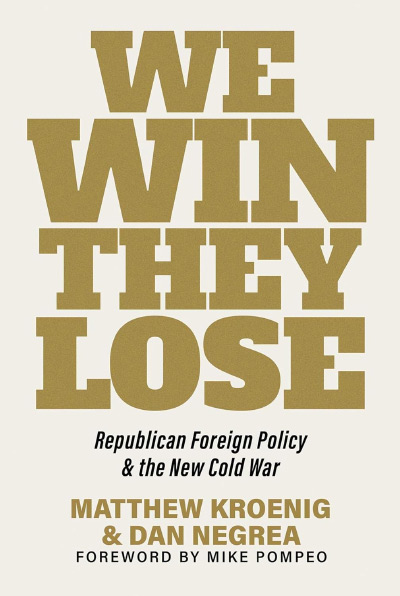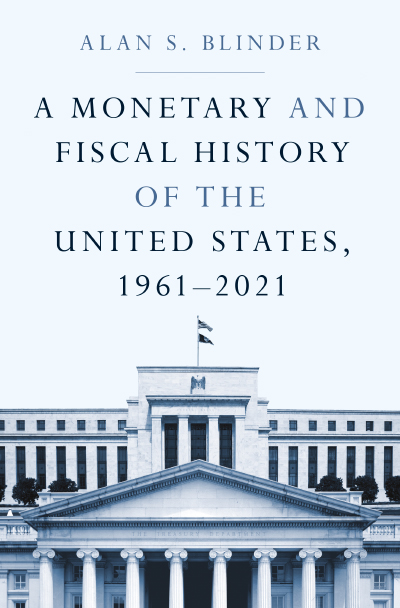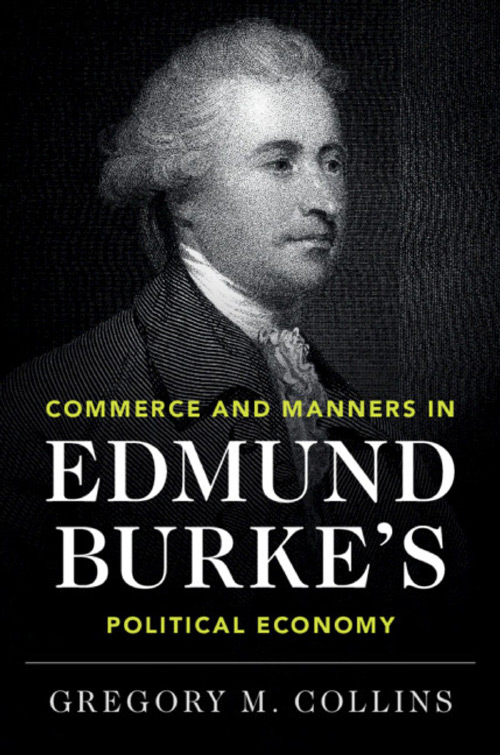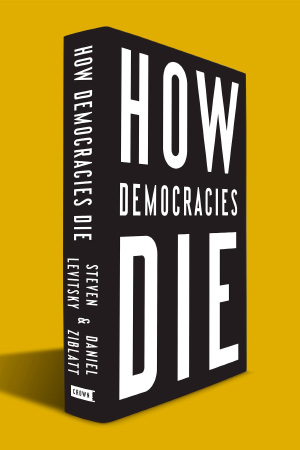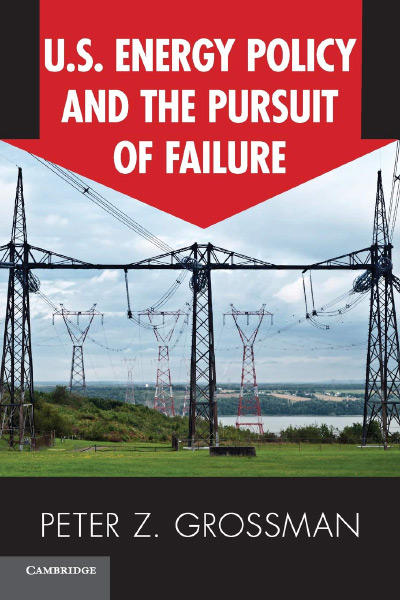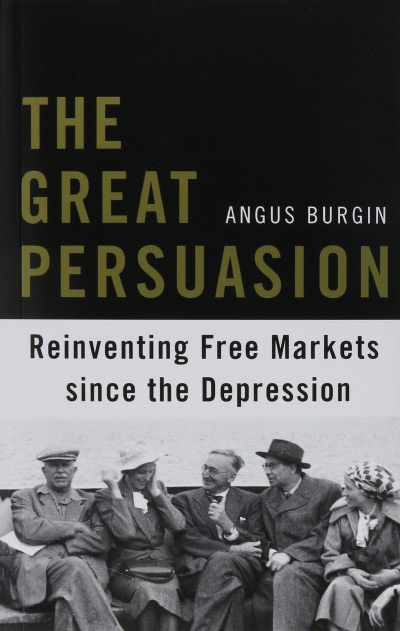In this bestseller work, two senior foreign policy experts with extensive experience make a strong case for a coherent set of conservative foreign policy doctrines that avoid the extremes of isolationism, neo-realism, and types of liberal internationalism that put universal human well-being ahead of national interests. Their argument for selective engagement with a focus on China and Russia fills a major gap in the existing literature and aims to provide a roadmap for a foreign policy reset during a new Trump administration and future Republican administrations. In addition to overviewing and connecting more topics than is typical in foreign policy books, they also hope to explain a reasonable conservative stance—inspired most of all by President Ronald Reagan—to “fair-minded progressives” with whom officials must interact here, in Europe, and in parts of the global South (p. xxiii).
The greatest strength of their doctrinal synthesis is evident from the subtitle; Kroenig and Negrea foreground the fact—which many, including President Joe Biden, still refuse to see—that we are already in a second Cold War that is both higher-stakes and harder to win than the first Cold War with the Soviet Union. This time, the outcome may determine the fate of all humanity well into the next century: if Chinese President Xi Jinping and Russian President Vladimir Putin win, the result could be a tyrannical global empire centered in Beijing with puppet dictators across the planet, who kill economic growth with maximally extractive institutions that consign all but tiny groups of elites to economic immobility and servitude. Kroenig and Negrea wisely force us to see just how great the existential peril has become, and what must be done to get the world through this coming crucible with prospects for a rules-based international order and basic standards of decency in government intact.
It is crucial, as the authors argue, that this new Cold War was not chosen by the United States and our allies. In the last two decades, Republican foreign policy thinking has become increasingly influenced by “offensive realist” arguments from John Mearsheimer, Stephen Walt, and others who insist that we should let the dictators in Moscow and Beijing secure control over their “sphere” or region (p. 109). This shockingly nineteenth-century thinking is echoed today by pro-Putin politicians such as Nigel Farage in Britain who say that we should not have expanded NATO to protect eastern Europeans who suffered so terribly under Soviet totalitarianism, and let Russia re-conquer Ukraine despite the 1994 treaty that supposedly ensured its independence in exchange for handing over its nuclear arsenal.
On the contrary, as Kroenig and Negrea clearly articulate, it is precisely policies of appeasement that have so emboldened Putin and Xi. If we had let Ukraine join NATO, Putin would never have invaded, whereas Putin intervened in Syria soon after he got away with invading Crimea in 2014. All western attempts to cultivate friendly relations and work with Russia and China in fora such as the UN Security Council (UNSC), G8, and G20 have ultimately been rebuffed. Trade does not necessarily “transform enemies into friends” (p. 74). For two decades, neo-realists have said that any western-led attempt to create a planetary league of democracies or global democratic military and trade alliance would prompt the world’s leading dictators to form their own league. Yet, while western leaders heeded counsels of placation in hopes that China and Russia would support a fair international system open to non-democracies, and expanded trade with them, Putin and Xi cemented their own alliance of kleptocrats anyway, aiming to make a separate financial order—and used our dependence on supply chains involving Russia and China against us. Through their BRICS trade group, Belt and Road program to build transportation networks and ports, and cultivation of debt traps in Africa, they have sought to make developing nations dependent on them.
In sum, since about 2011, Putin and Xi (along with Iran and North Korea) have goneall-in on maximum resistance to any reform movements seeking to bring about rights-respecting democratic government anywhere in the planet—think of Syria, Myanmar, Belarus, Hong Kong, Venezuela, Sudan, South Africa, Libya, Cuba, and of course Ukraine. Moreover, they have tried to subvert and sabotage NATO nations with all manner of cyberattacks, ransomware, cyber-propaganda wars, cultivation of “fifth columns” within the U.S. and Europe, and even assassinations. In multiple ways, these regimes try to turn Americans “against one another” and undermine the credentials of democratic governance (p. 7). Kroenig and Negrea rightly urge NATO nations to respond in kind with daily efforts to break China’s internet “great firewall” and find ways to message the Chinese public directly, assuring them that our fight is only with their corrupt CCP rulers. (Here more specifics could lay out a twenty-first century version of “Radio Free Europe,” perhaps via Sat-phones and Elon Musk’s vast set of satellites.) The time for attempts to placate Xi and Putin is over: because they decided that they cannot live with nations promoting “democracy and human rights” (p. 107), they have turned our relationship into a zero-sum fight. We have no choice now but to contest their Orwellian global vision with every tool of statecraft available.
With this overview of the book’s main thesis in place, I turn to some of its other principal features. It is written for an educated general audience and can easily be comprehended by college undergraduates. Yet this work is backed by extensive research: there are 87 pages of bibliography and endnotes. The authors’ wealth of knowledge is evident on virtually every page. While the book does not try to treat every relevant aspect of U.S. foreign policy or survey every important moment in international affairs since Richard Nixon—it focuses more on cases in which Republican leaders made good decisions and Democratic leaders made mistakes—the authors’ command of relevant historical details is abundantly obvious throughout. A bit disturbingly, for this studiously centrist reviewer, I find them to be correct on almost every key point, although I will try to raise some criticisms.
For example, in setting out eight main goals for a foreign policy calibrated to serve U.S. national interests broadly understood, Kroenig and Negrea argue that “Washington should seek to prevent a hostile power from dominating an important geopolitical region,” granting that not all regions are equally crucial for American interests (pp. 4–5; although, keeping African leaders free from Russian and Chinese control is also important, p. 111). We must also combat terrorist groups globally and seek to secure the “global commons,” including cyberspace and outer space (p. 6). Their comprehensive conservative approach thus contrasts with more isolationist and offensive realist positions on several key points. While our main goals cannot be nation-building and human rights promotion abroad, “promoting democracy and countering autocracy overseas” is essential to security and liberty at home (p. 7). While we have worked with cooperative non-democratic regimes, the “universal ideals” of western democracies are a crucial source of legitimacy that strengthens our hand in this new Cold War (p. 72). By contrast, as they point out, China harvests and resells organs from prisoners, is committing genocide on its Uighur Muslim minority, and controls its population via a reign of terror worse than the old Stasi imposed.
In fact, the authors could reasonably have gone farther and affirmed, with Garry Kasparov, that western defenses of basic rights and limits on arbitrary uses of government power are ultimately our greatest asset, because our dictatorial adversaries cannot offer anything like these distinctive values. But they argue convincingly that progressives are wrong to constantly blame American ambitions for the world’s worst problems while overlooking the enormous offenses of dictatorial regimes.
Kroenig and Negrea are also right that Biden has not sufficiently deterred Xi and Putin, despite his support for Ukraine and his efforts to stop export of semi-conductor and chip-making technology (while building more internal U.S. capacities in these areas). As they note, we need to expand our military capacities significantly in the Pacific with new nuclear weapons and missile defense arrays to deter a Chinese invasion of Taiwan that is otherwise sure to come. Biden also must own the botched withdrawal from Afghanistan—although its time-horizon was set by Donald Trump’s deal with the Taliban. Further, as Russia was building up troops on Ukraine’s borders in January of 2022, Biden foolishly said that “a direct U.S. military response was off the table” (p. 24). He also rewarded Putin for nuclear saber-rattling (pp. 114–15) by supporting unethical German demands that Ukraine not use NATO-supplied missiles to target sites within Russia from which Ukraine is being attacked.
Here I would go farther than the authors: given that Russia’s victory over Ukraine would motivate more leaders of developing nations to cast their lot with Putin and Xi, NATO should have put troops along the eastern front in Ukraine by January 2022. That, I believe, is what both Reagan and John Kennedy would have done. At the very least, NATO should have enforced a no-fly zone over Ukraine and prevented Russia’s navy from operating freely in the Black Sea. While no one wants a hot war between NATO and Russia, brinksmanship backed by a real willingness to “escalate” is sometimes indispensable to deterrence, as the authors affirm: “a powerful U.S. military has no deterrent value if the rest of the world does not believe the U.S. president would ever employ it” (p. 35). To counter Putin’s imperial ambitions, the next U.S. president must get our “wealthy European allies” to rebuild Ukraine and deploy far more conventional army divisions and tanks along Europe’s long border with Russia. He must also massively expand U.S. exports on liquified natural gas to Europe (pp. 115–17).
One might also extend Trump’s valid criticisms of Germany, France, and other European NATO partners who love to cheap-ride on the U.S. by emphasizing that it should really have been these nations sending their troops into Ukraine to deter Russian invasion—especially given what Germany did to Ukraine during World War II, and the small detail that this is a European war. Putin’s star would already be waning by now if he had been forced to back down in February 2022.
Instead, the manifest unwillingness of Europe’s NATO nations to commit ground troops in Ukraine, or even provide fighter jets and long-range missiles, has also convinced Iran’s hardline leaders that democratic nations will do nothing to stop it building a nuclear bomb. I am less sure than the authors that the 2015 JCPOA bargain with Tehran was useless; and I doubt that the dual-track maximum “deterrence and diplomacy” strategy they suggest will be enough without a major strike on at least one Iranian uranium enrichment facility. But they are certainly right that Iran has provided critical support to the genocidal Assad regime, to Hezbollah, and now to Russia (pp. 120–22). Indeed, a bolder U.S. president might have taken Iran’s supply of armed drones and missiles to Houthi militias in Yemen and to Putin’s forces in Ukraine—along with Iran’s unprecedented direct assault on Israel in April—as sufficient justification to destroy Iranian drone-making facilities. A serious effort to support creation of a Kurdish state would also help to stymie Islamist terror groups in Iran, Iraq, and Syria. On this point, Trump could have defended our Kurdish allies, who fought so bravely against ISIS, by preventing Turkey’s 2018 seizure of a buffer zone in northern Syria.
The authors are correct that “peace through strength” is the central principle in a balanced conservative foreign policy. In chapter three, they lay out how this principle helped Reagan to win the first Cold War. By contrast, undermined by a shock British vote against a military response when Syrian president Bashar al-Assad used chemical weapons on his Sunni civilians, President Barack Obama showed weakness through inaction. Kroenig and Negrea also justly demand that U.S. allies in Europe and Asia “do more for their own defense” within a unified “Free World force posture” that includes our mutual defense partnerships with Japan, South Korea, Australia, and India. But here they could have stressed the need for a global alliance of democracies that would embed and strengthen all of these security pacts within a unified framework to support a rules-based order. This is the best available way to ensure that the costs of peace through strength do not fall mostly on American taxpayers and military personnel—and to provide a clear alternative to the UNSC, which China and Russia have broken beyond repair (p. 104). Unfortunately, the New Axis of tyranny has far more resources than the old USSR did: as China rapidly builds military capacities in sea, air, and space, the U.S will not be able to outspend them forever. We need to share that burden with the best alliances it is feasible to build.
Along with Kroenig and Ash Jain, I had hoped that Biden’s “Summits for Democracy” would move in this direction, starting with efforts to transform the G7 into a “D10” (Democratic 10) or even a D12. Instead, far too many nations were invited. These summits became little more than photo ops, parades of pledges laced with lots of sops to woke cultural agendas that alienate potential U.S. allies, and a plethora of NGOs showcasing their own more impressive innovations. Instead, building a global alliance of democracies devoted to maximal confrontation of China, Russia, and Iran could bring non-aligned “hedging states” such as India, Indonesia, South Africa, and Brazil into the fold—first of all as D12 members. A new Republican administration must refocus on this key diplomatic initiative that could reverse the global “democratic recession.”
Kroenig and Negrea are especially forthright and insightful on the economic front. While trade with China needs to continue, China is “preying on the global economic system” (p. 79), robbing the U.S. and our allies blind. The U.S. and our allies must selectively “decouple” from Chinese sources in all critical supply chains, going well beyond the CHIPS Act, and impose robust tit-for-tat economic sanctions (p. 59, 150). We must stop training technology experts headed for China at U.S. universities and prevent China from blackmailing free-world corporations into suppressing all content critical of China’s totalitarian atrocities and suffocating surveillance, which are now driving many to become asylum seekers.
But here again, given the scale of China’s markets, free-world corporations will be able to resist China’s boycott threats only when they are part of a united front, including the U.S., Europe, and enough other OECD nations to make an alliance with perhaps 70% of global commerce (p. 45) (the “Trans-Pacific Partnership,” which Trump nixed, would be a sound step in this direction). Such an “Economic Article 5” proposal, which Kroenig and Negrea have supported in past writing, would also work best as part of a new global security and economic alliance of democratic nations (they do mention a “global Democratic Technology Alliance,” p. 150). Otherwise, China will be able to pick off free-world corporations one by one: they need access to China’s markets as long as their competition has such access, which puts them in a prisoner’s dilemma. Many developing nations would be incentivized to join the U.S. and our allies in a mutual economic protection pact strong enough to thwart China’s blackmail tactics, punish its cyberthefts, and stop it from forcing foreign investors in China to hand over their technology and client information: potential allies within the global South could then trade with China without becoming Beijing’s vassals. Such an economic alliance could also muster the total economic pressure on Iran for which the authors call.
The book also includes excellent discussions of North Korea, where there are few good options other than strong deterrence and pressure on China. On climate, the authors support green and nuclear energy investments, but also natural gas and much faster environmental review and permitting. They recognize that the greenhouse problem is a prisoner’s dilemma in which it makes zero sense to accept high costs of de-carbonizing unilaterally: only a treaty in which China—and I would add India—match any U.S. carbon cuts or caps is worth ratifying.
Kroenig and Negrea’s final chapter offers a careful and insightful analysis of immigration and border security: we need to reform and expand legal immigration pathways based on criteria in our national interests, but end illegal immigration and criminal trafficking rings before another 9/11 results. The trouble is that we can reduce the “pull-factors” by denying work permits while a migrant’s asylum claim is pending, tightening the standards, erecting more barriers, and deporting more migrants who overstay visas or come in through otherwise than legal ports of entry; but eliminating the “push-factors” is much harder. For example, Nicholas Maduro’s savage dictatorial kleptocracy has destroyed Venezuela, driving over six million Venezuelans into exile, much as Assad’s razing of Sunni cities in Syria with Russian and Iranian help drove over six million Syrians to flee. Then there is anarchy and gang rule in Guatemala, Honduras, and El Salvador—and increasingly in parts of Mexico as well as Peru and Ecuador. Only a global alliance of democratic nations would have the power, resources, and legitimacy to tackle these root drivers of mass migration head-on.
An unavoidable question for Kroenig and Negrea now concerns what Middle East policies a new Republican administration should pursue after Israel’s latest Gaza war (which broke out just after their manuscript went into production). Perhaps a second edition will address this fraught topic. But I suspect the authors would support resisting Hamas and Hezbollah with all necessary force, while maintaining the longstanding U.S. commitment to a two-state solution—which itself will now require a large coalition—so that the Abraham Accords process can continue to strengthen our most vital Middle Eastern ally.
Overall, Kroenig and Negrea’s book offers invaluable clarity that corrects much foreign policy confusion. Political leaders must explain to the American public and to audiences in our allied nations that we are in a new Cold War, with incalculably great existential stakes, which will be harder to win than the five-decade effort against the Soviet Union. There is no way now to just keep the good times rolling by avoiding confrontation with Chairman Xi’s despotic machine: the price of such wishful thinking would be surrender to a web of malign control that already reaches across much of the world. This book is the needed wake-up call.

